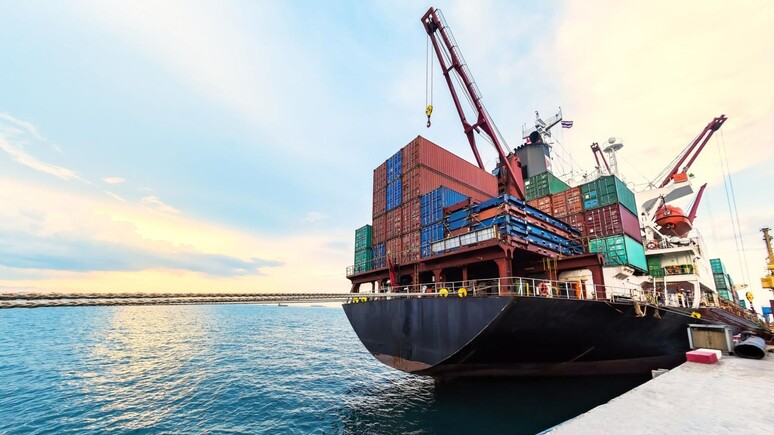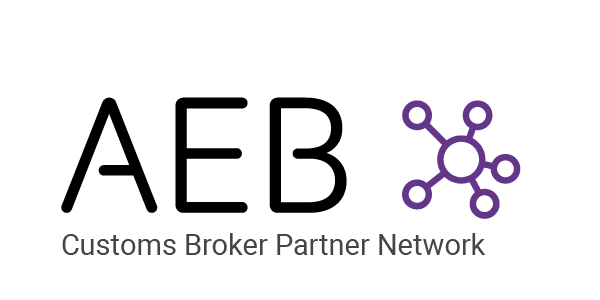
"We see ourselves as a tech company"
Ivan Tintore, CEO of MAITSA in Barcelona, explains why his company is more than a customs brokerage.

Ivan Tintore, CEO of MAITSA in Barcelona, explains why his company is more than a customs brokerage.
Ivan: Technology definitely plays a big role for us. MAITSA is a family-owned business with a 50-year history. From the very start, we have been open to any innovation with the potential to make our work and that of our customers easier. That’s why we also saw digital technology as a big opportunity. MAITSA was the first company to use the EDI system for electronic communications with Spanish customs.
Ivan: We also founded iContainers, one of the first online freight forwarders …
“We have a tech-savvy team in an industry that still pushes a lot of paper.”
Ivan: MAITSA today has a young, tech-savvy team in a heavily analog industry that still pushes a lot of paper. So it’s no surprise that most of our workforce is now remote. We used to have 16 employees in our Barcelona offices, and naturally we had people at the airport and seaport as well. The pandemic presented us with an opportunity to reinvent ourselves, and the business also became more digital. Everyone now works at home most of the time, and we take turns doing stints in the office to handle the documents there. And every couple of weeks we meet for a big update.
Ivan: We’re seeing things starting to move forward on that front. But we still get a lot of analog data via snail mail. This is not ideal, of course, since it has to be entered into the system and requires us to take turns working in the office – as opposed to digital data, which can be processed automatically for the most part.
Ivan: It takes time, especially if the data is incomplete, which of course happens. We have a team that inputs the data and adds any missing data, plus another team that handles any questions from customs officials.
Ivan: We have a color-coded system for the different declarations. Green means everything is in order. All we need to do here is arrange for the proper documentation. Here in Spain, such documents must be retained for four years. Yellow means that the customs authorities need the documentation. And red typically means that we need to be present for a physical inspection of the goods and prepare the necessary forms. This includes hygiene inspections and the like. When this happens, our specialists travel directly from home to accept the goods at the port or airport or wherever they happen to be.
Ivan: Yes. We see ourselves as a network – a broker hub linked through our software. That makes us agile and responsive.
Ivan: Let me put it delicately: Much remains to be done.

MAITSA CEO Ivan Tintore
MAITSA is a full-service customs brokerage with over 50 employees, 50 years of experience in the market, and a focus on innovation and new technologies. The Barcelona-based family-owned business is driven by its vision of helping customers improve their entire logistics process. This includes reducing the use of paper and speeding up processes through automation and digital technology. In addition to its portfolio of customs services, MAITSA also offers customs-related consulting and training.
"Despite some progress, digital technology in customs as a whole is still in its infancy."
Ivan: Despite some progress, digital technology in customs as a whole – in the larger customer journey – is still in its infancy. What’s often missing is the basic understanding that digitalization saves a ton of resources. This means, of course, that there is tremendous potential for us and our customers to improve how we manage customs and communicate about customs management. We’re on it, and I’m excited to see what happens in the coming years.
Ivan: Of course. Embracing digitalization is about more than just the customs “process” – it’s about the entire user journey, from finding the right company to troubleshooting. For us, it’s not only important that we do outstanding work for our customers, we also have to be found by the people we can help. Prospective customers go looking for customs services for any number of reasons and in any number of situations. That’s why we also place great importance on marketing tools such as SEO …
Ivan: Yes. For example, we need a specialized, optimized website so that customers understand what we offer and how we work. Prospects who visit our website always know what they need to do and how we can help them. In my opinion, this is also part of the digital customs process.
Ivan: Exactly. And, as I said, that starts before we actually begin working together. Many customs service providers will start by promising the moon and the stars. It’s important for us to know our customers, to know what we’re dealing with. We explain exactly what we offer and how. And for many, “digitalization” simply means sending a PDF. What’s missing is an integrated, end-to-end process and an understanding of the role of technology. That’s why we see ourselves as a tech company, not just a customs broker.
"We see ourselves as a tech company, not just a customs broker."

In a series of interviews, we take a closer look at our broker partners around the world and the intricacies of their day-to-day work in customs.
Some are generalists, others specialize in certain goods, all of them are experts for their country or countries. They have all joined the AEB Customs Broker Network that provides hassle-free, digitalized access to broker services for companies looking for reliable customs expertise.
Ivan: As I said, the technology aspect has always been important to us since we began working with software. We initially had external partners for this, but we weren’t satisfied with the solutions. So we became our own tech provider. Tech providers only see the technology side and customs service providers only see the customs side, but we see the whole picture – and this is a huge advantage. We recognized this and began hiring in-house engineers about 10 years ago. This has opened up entirely new horizons within our company and helps us address the specific needs of our customers.
Ivan: We had a big customer that wanted each week’s customs declarations handled over the weekend. This required us to find an automated solution so we wouldn't have to work every weekend. On a more general level, it’s also about gaining a competitive advantage, of course.
"Tech and digitalization are a mindset."
Ivan: Exactly. There are five or six software companies that all do the same thing, and when they release a new version, everyone has the same new features at the same time. We wanted to establish our own pace of innovation and our own ideas, and work with the most innovative partners. We wanted to be the first.
Ivan: Tech and digitalization are a mindset. A tool. Our customs expertise is what we can bring to our customers faster and better through technology. For us, it’s all about that connection. And about showing customers a path from how they’re working now to what is possible. To the innovations that can make their lives so much easier.
Ivan: The quality of the data improves when it can be shared and processed digitally without any analog steps. It’s actually quite simple. This is precisely what we seek to achieve for our customers. With interfaces to their ERP systems, for example. We look at each customer and develop a solution targeted to that customer.
Ivan: We consult with each customer individually, of course, but the process is clearly laid out. We have our API structure, which is designed to be easily integrated so that the system – and the customer – can be up and running as quickly as possible. The technology side of things is relatively simple. What’s often more complicated is convincing people that we can help them save a lot of time and avoid mistakes that otherwise create havoc during customs inspections, which in some countries take place at regular intervals. They need to see this long-term value clearly.
Ivan: I think it really comes down to volume. Small customers tend to be more analog and don’t see the value as much. Our services are attractive to low-volume customers primarily when they deal in very specialized goods with high customs costs.
The AEB software Customs Broker Integration digitizes the collaboration with your customs brokers. Choose one of the trusted partners from AEB's broker platform to work with or simply connect your own broker.
“Electronic customs management has a disruptive power for many customers.”
Ivan: When we show them our technology and how we work, high-volume customers often see the value and the downright disruptive effect that electronic customs management delivers. We’re working to help people see this as quickly as possible.